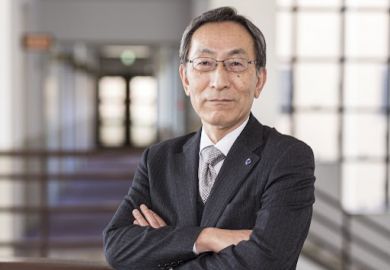The most fervent opponents of the creation of teaching-only universities in Australia are the most enthusiastic recruiters of teaching-only academics, submissions to a landmark review suggest.
The Review of Provider Category Standards has exposed paradoxical views about the teaching-research nexus, with commentators adamant that the title “university” be reserved for institutions active in research, despite widespread scepticism that research activity enhances teaching quality.
The review has been established to tackle a lopsided Australian hierarchy, where three-quarters of the 175 degree-conferring institutions are corralled into the catch-all category of “higher education provider”, with the remainder dispersed across five university categories.
Most of these are concentrated in the “Australian university” grouping, with two institutions defined as “overseas university” and one “Australian university of specialisation”. Another two categories – “Australian university college” and “overseas university of specialisation” – are vacant.
The review is also courting suggestions on how to encourage diversity within Australia’s coterie of lookalike universities, amid an escalating view that the sector must specialise to survive, let alone thrive. A key question is whether to discard the requirement that institutions which call themselves universities must conduct research.
Of 66 published submissions to the review, just nine – and none from the 29 individual universities or 12 representative bodies that provided formal feedback – support this proposition.
But the review is being conducted against a backdrop of change in the university workforce, with teaching-only academics constituting a small but rapidly growing proportion of staff. Last year former University of Melbourne deputy vice-chancellor Frank Larkins found that their numbers had doubled since 2013, while the ranks of research-active academics had declined.
The universities that explicitly reject the notion of teaching-only universities include Curtin and Central Queensland universities, both of which have more teaching-only academics than any other universities in their respective states, according to the education department’s latest statistics.
Australia’s biggest employer of teaching-only academics, Victoria’s Deakin University, says “research should continue to be synonymous with the category of university”. The next biggest employer, the Australian Catholic University, says the nexus between teaching, research and scholarship is “inviolable”.
“Australia must not regress to a two-tier higher education system, where only some universities teach and research while others are teaching-only,” its submission insists.
Meanwhile, staffing statistics show that Avondale College – one of seven non-university institutions that oppose the research requirement – has just one teaching-only academic, in full-time equivalent terms.
Sydney mathematician John Loxton, a veteran of both the university and independent higher education sectors, said the insistence on research activity overlooked “considerable variation in research culture”.
“Our current universities…may include ‘teaching-only’ units and ‘teaching-only’ staff,” his submission says. “Research institutes are often separate from teaching units. The criteria for university status seem to boil down to sentiment.”
But Queensland University of Technology said the “settled meaning” of the university title in Australia, and the “perception of quality in the international marketplace”, militated against any relaxation of research requirements.
The university’s submission says arguments about the teaching-research nexus have persisted for decades and are unlikely to be resolved “any time soon”, but their relevance to the review is “negligible”.
It says the provider category standards require scholarship to underwrite taught courses, and research to demonstrate “competence to supervise research training”. The standards framework “does not rely upon a putative teaching-research nexus”, the university insists.
后记
Print headline: Opposition to teaching-only universities ‘is just sentiment’




